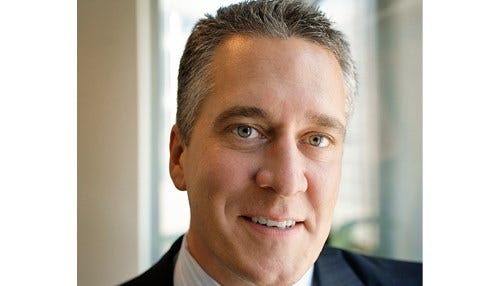Social Issues And The C-Suite: Why Silence Isn’t Always Golden

Subscriber Benefit
As a subscriber you can listen to articles at work, in the car, or while you work out. Subscribe NowOur nation is politically divided and myriad channels exist for us to share our diversity of opinions online. As individuals, we use social media disclaimers like, "these thoughts are my own" or "my views don’t speak for my employer." Then, we let our friends and followers know exactly what we think.
Corporate and non-profit leaders don’t have that same luxury. They’re more in the public eye and increasingly being asked to take positions on contentious issues at a time when speaking out might mean alienating numerous key stakeholders while delighting others.
These are challenging times and some leaders have observed the political minefields and decided to take a bunker mentality in hopes of riding out the storm. For decades, the practice of staying silent on social hot potatoes was a generally accepted path for companies and their CEOs to take. Today, the environment is different and when leaders stay silent on key issues, it can come with a price.
"What’s changed most over the past year is that staying out of the fray now has a cost," said Duke University professor and CEO activism expert Aaron Chatterji in The Washington Post. "It’s a choose-a-side mentality. The middle is harder to occupy. And with the proliferation of social media, it’s kind of like a microphone that’s always on. If you’re not speaking out, it’s more conspicuous."
With that as the backdrop, many of the corporate and non-profit leaders we work with feel that they’re damned if they speak out and damned if they don’t. And they’re right.
Facing that reality, how can leaders and organizations best prepare for what’s to come? The answer lies in approaching CEO activism with the same strategic rigor that goes into other areas of the business.
When organizations set out to launch a new product, service or strategic focus, they spend months – often years – analyzing what the market needs, talking to investors or donors, aligning with supportive stakeholders, developing plans for coming to market and more. This same rigor and diligence is needed when it comes to taking positions on major social and economic issues.
Unfortunately, leaders often don’t have the luxury of taking months to figure out whether to take a position on a social issue or not. That’s why organizations should engage in preparedness planning that allows them to:
Map out the various social and economic issues they may need to address;
Think through the potential risks and rewards of action (or inaction) based on their key audiences such as consumers, investors, donors, employees, etc.;
Prioritize the subjects and topics they want to be proactive, reactive or silent on;
Find other industry or community allies willing to stand with them in support of their position;
Draft strategic messages and statements for sharing with key audiences;
Continually monitor issues so that engagement plans can be updated in real time.
When leading these preparedness planning sessions, we encourage leaders to think strategically about who needs to be in the room. The intent is to ensure that a diversity of perspectives – political persuasion, race, ethnicity, sexual orientation, socioeconomic status, gender identity, religion and more – are represented. Yes, these planning dialogues can be challenging, but mistakes happen when leaders only invite those people who will tell them what they want to hear.
During this time of great national division and unrest, it’s easy to understand the temptation to go into the bunker and wait things out. Some leaders might think it’s just the big tech companies or employers with large millennial workforces that need to weigh in. But that’s not the case. Staying silent on the big issues of our time – even for the most traditional of American companies – can come with a price.
That’s why now is the time to start asking, what does your organization stand for and how prepared are you to respond when asked for your point of view?
Mike Marker is senior partner at VOX Global.
